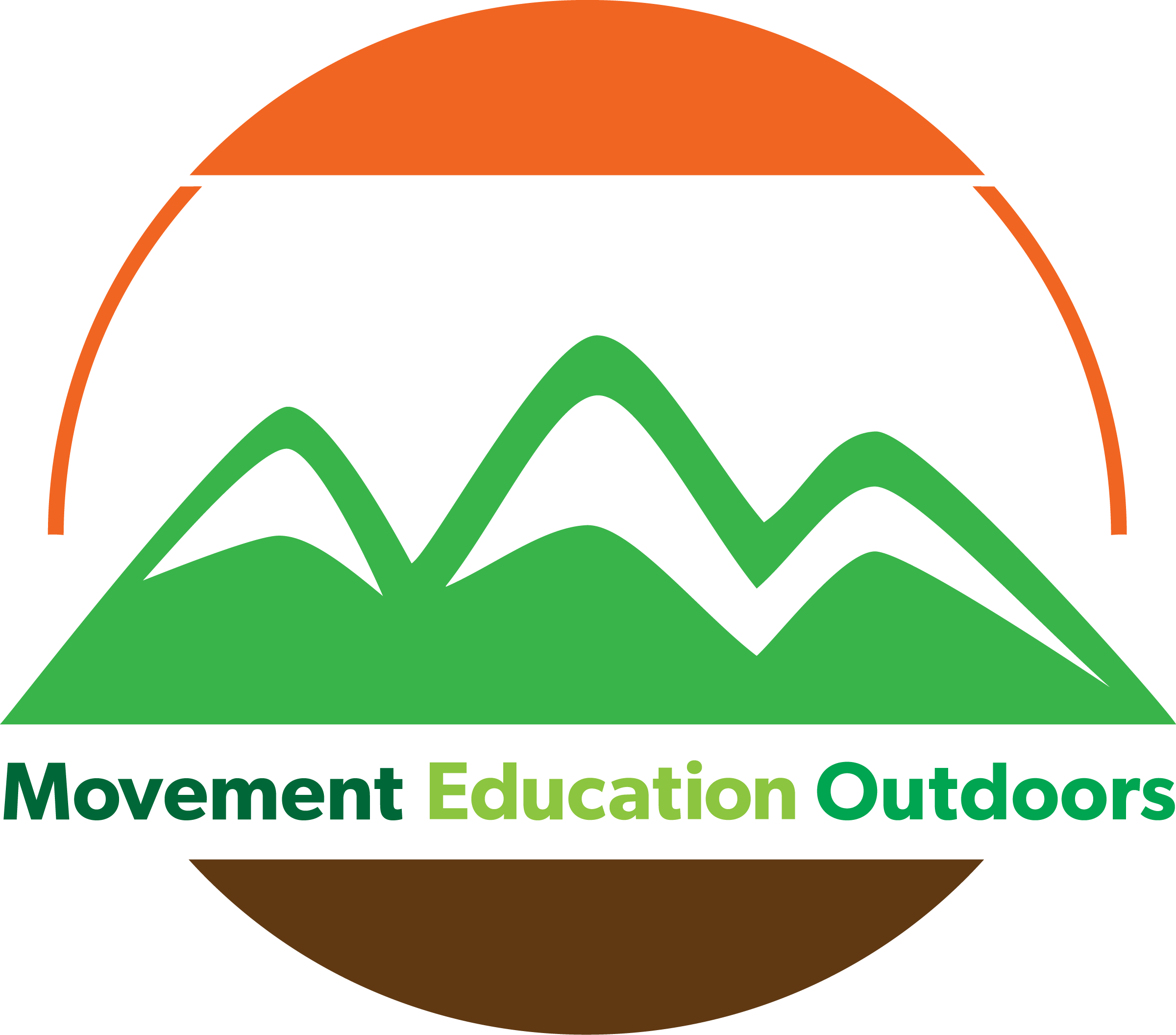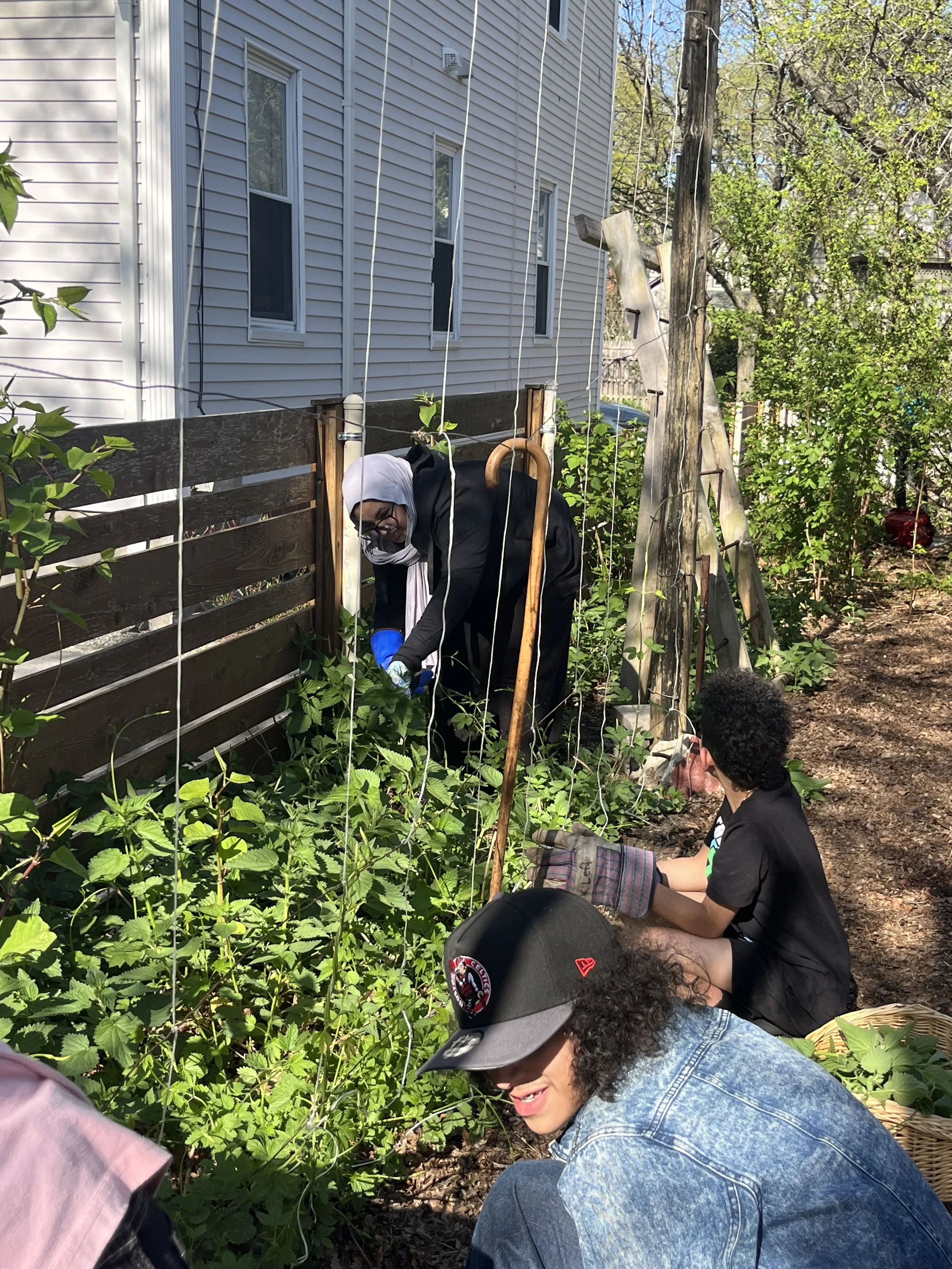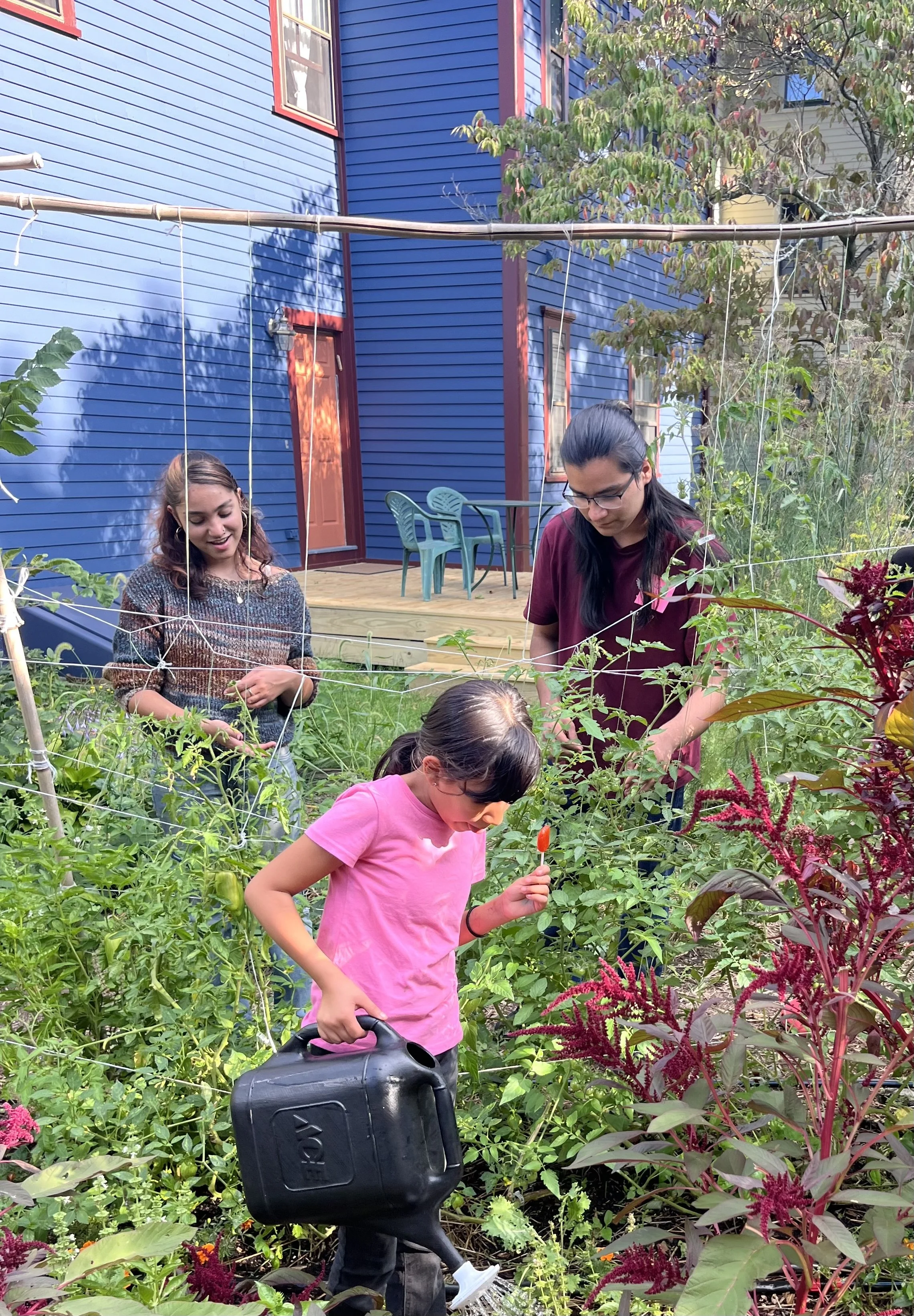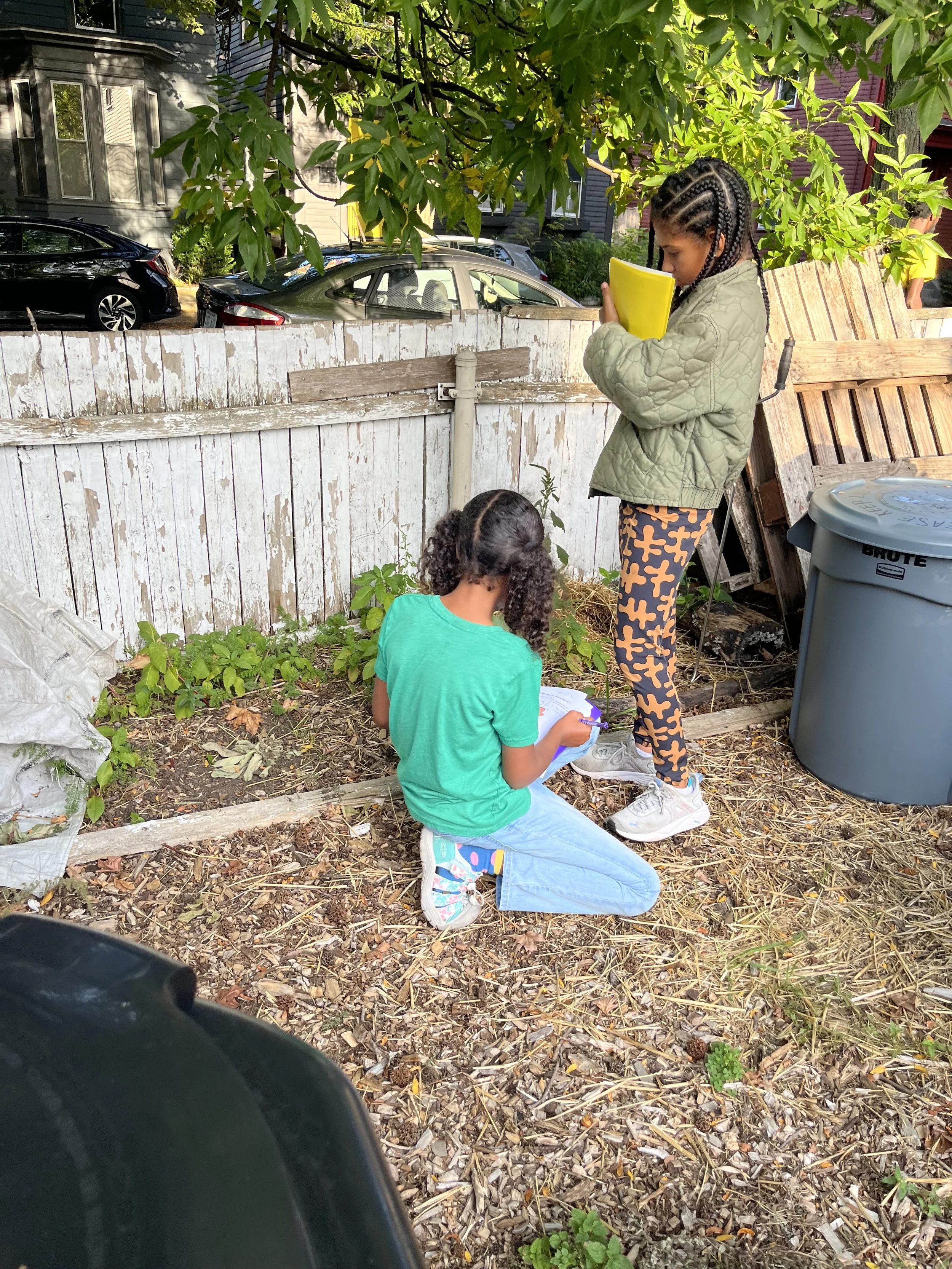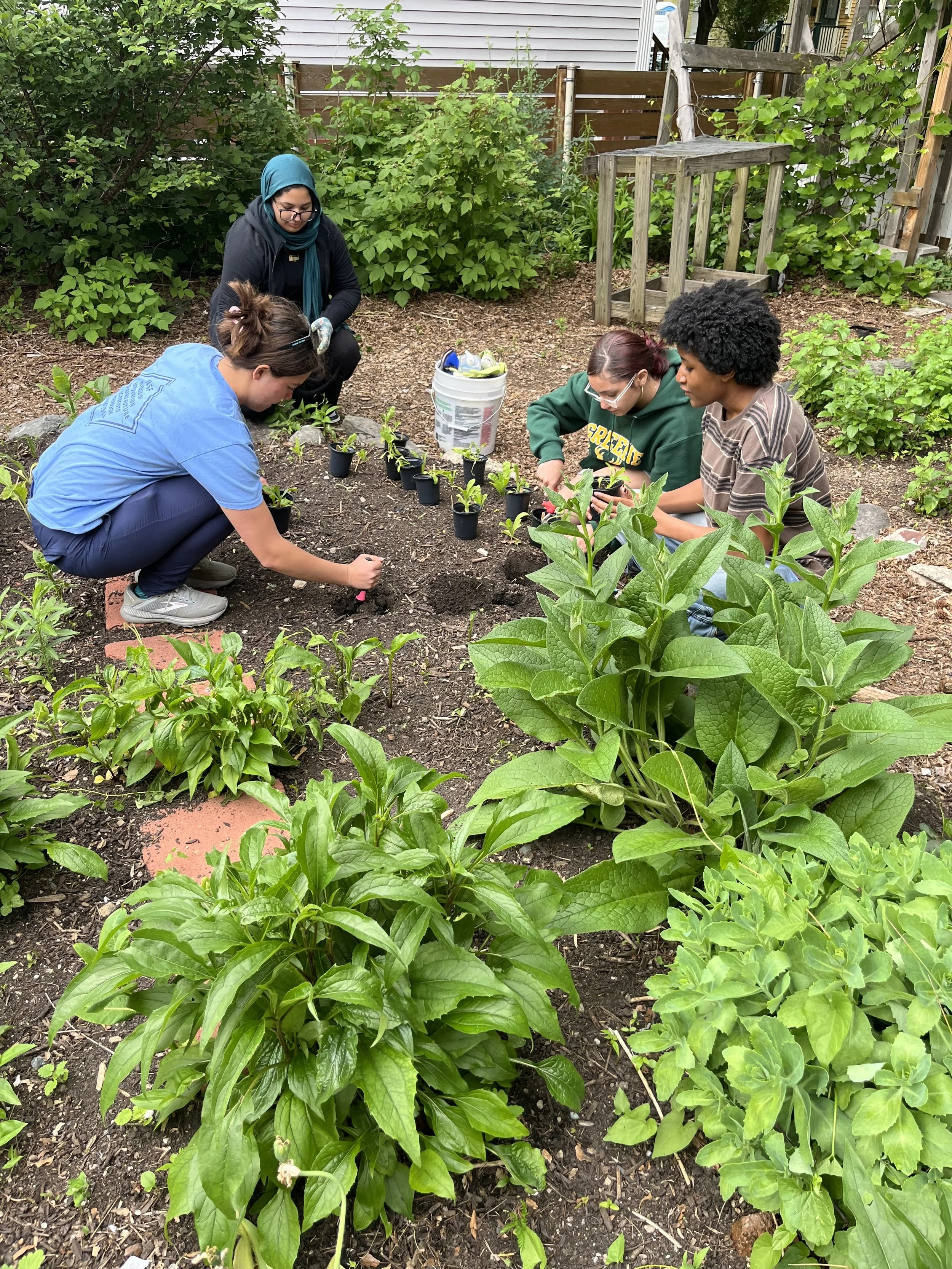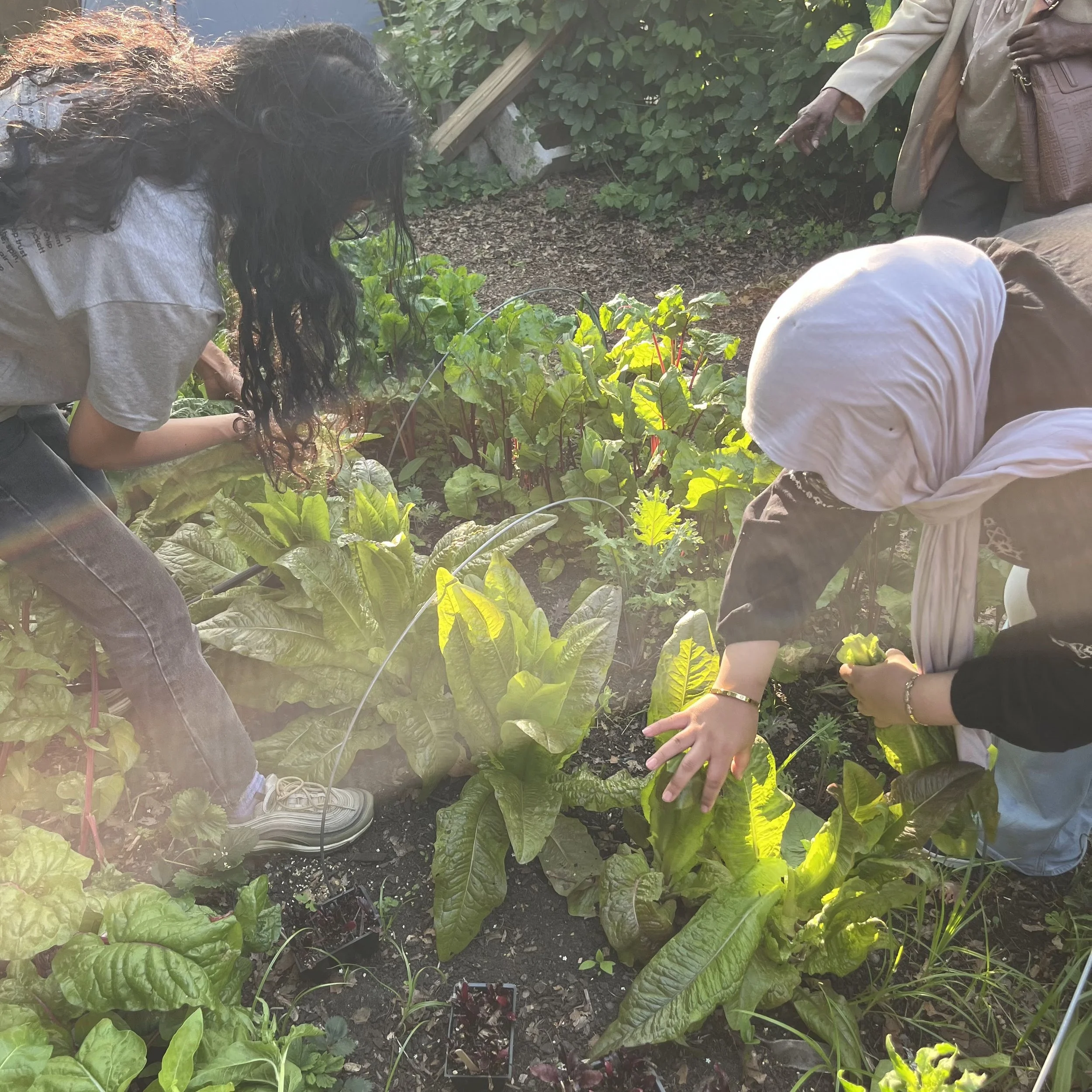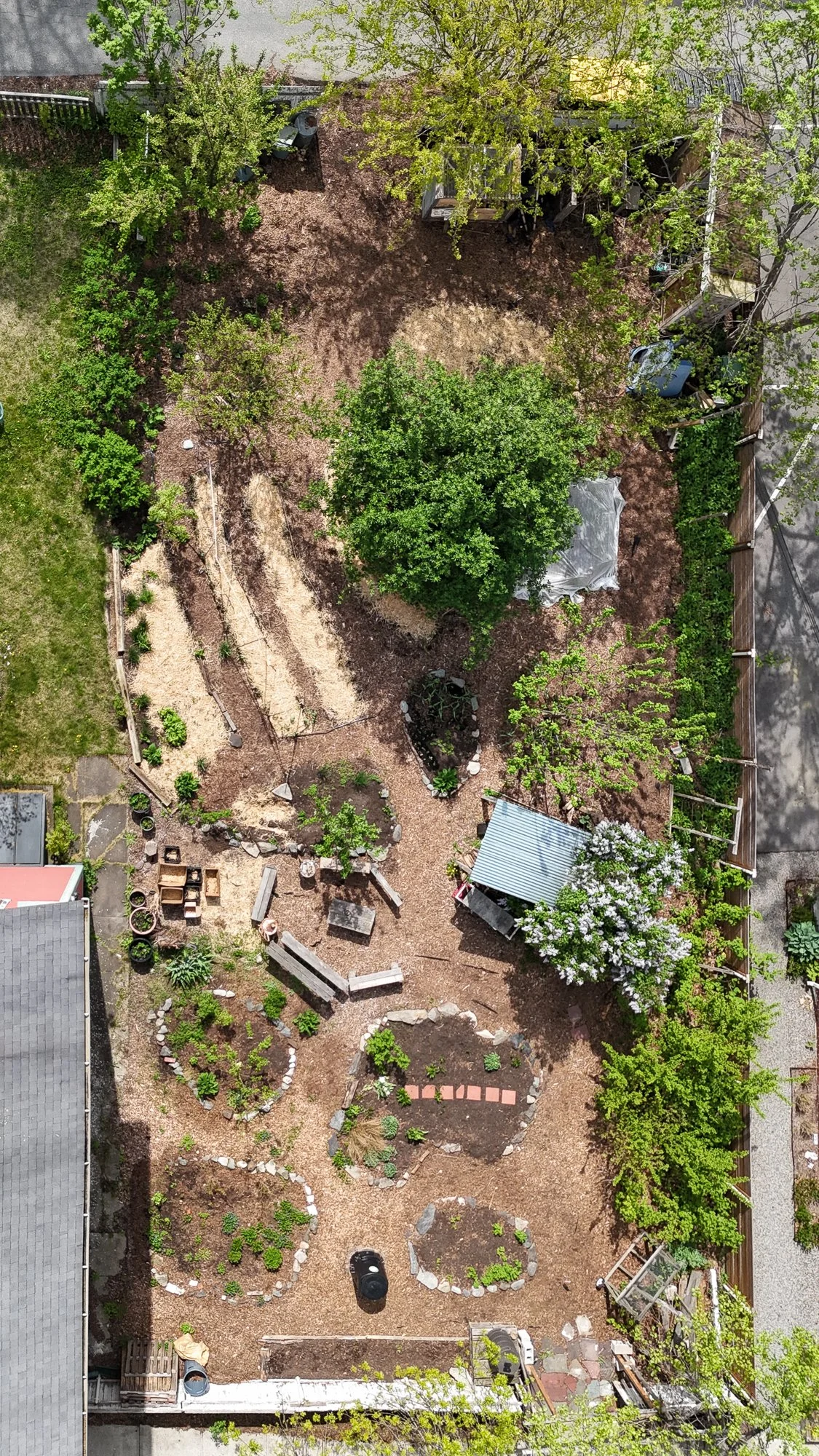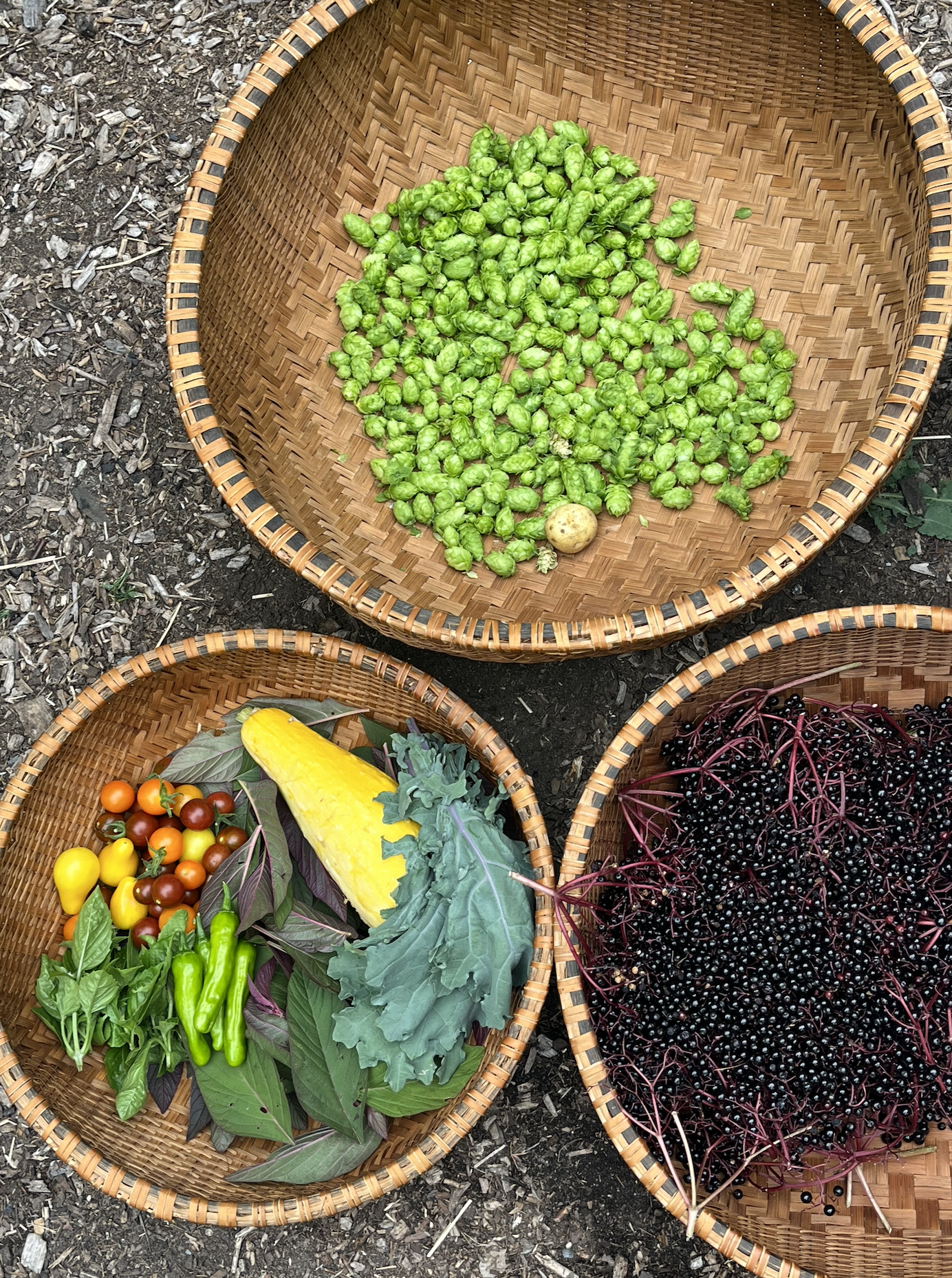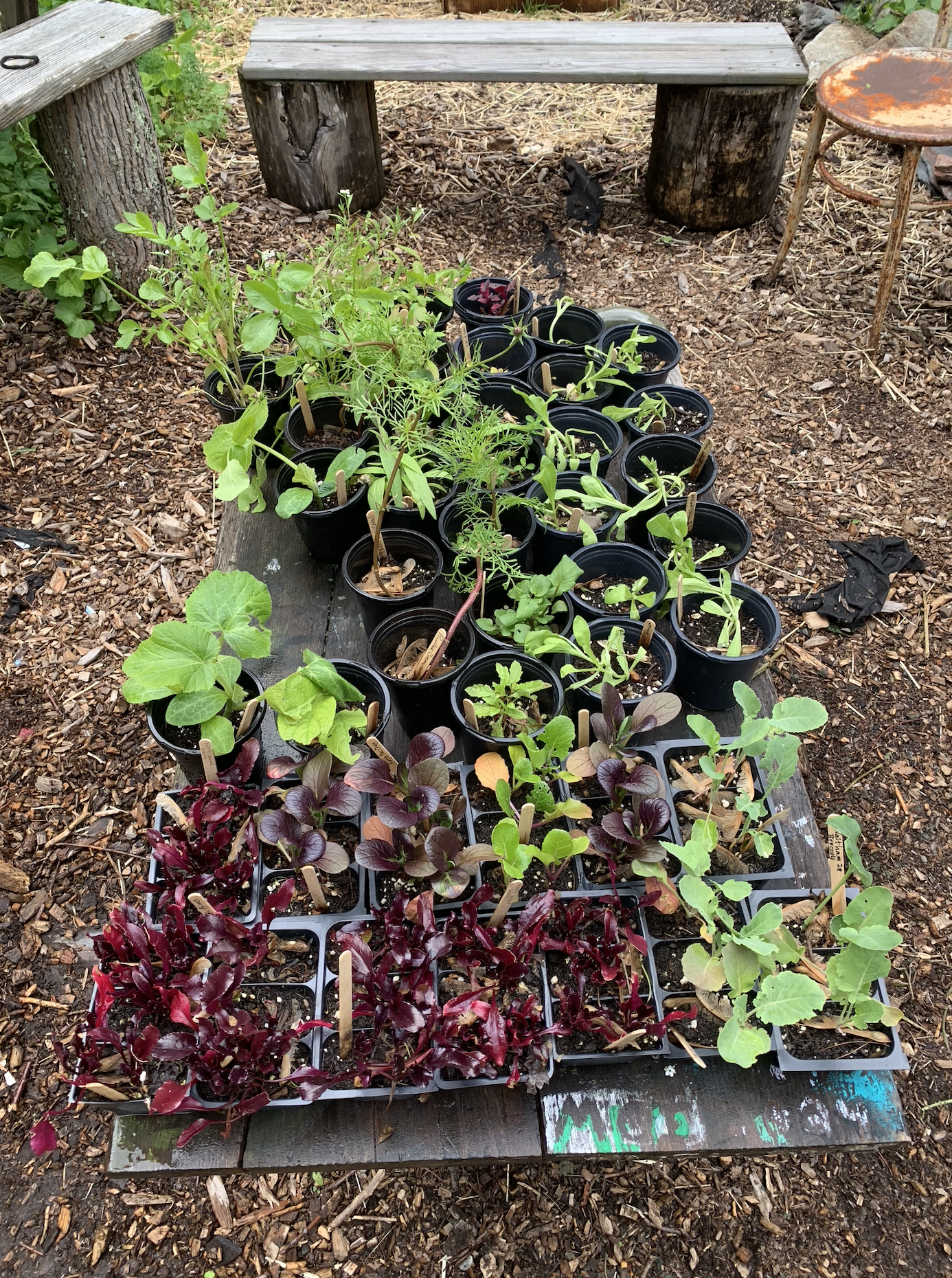West end raÍces
Movement Education Outdoors stewards a small urban farm in the West End neighborhood of Providence, on Pokanoket land. It’s a place for us to be close to the earth and the soil, to come together and grow food to nourish our bodies.
In the summer of 2021, we ran the very first iteration of West End Raíces: a 14-week food justice and gardening internship for young people of color. That first cohort named the garden (and the program) “West End Raíces,” or “West End Roots.” Each year since, a new cohort of youth farmers, guided by returning youth leaders, has nurtured the space, cultivating community and leadership skills along with vegetables, fruit, and medicines.
In 2025, MEO staff started an intro to farming training with farmers Andraly Horn and his daughter Sienna Horn who run Open fArms in Cumberland, RI. The partnership and apprenticeship will continue into 2026 as MEO staff and Open fArms farmers turn West End Raíces back into a fully running CSA producing urban farm. Our goal is to distribute the produce to the surrounding West End neighborhood.
Program highlights
-
At West End Raíces, youth learn by doing. They take active leadership in stewarding the garden throughout the growing season—learning and practicing the processes of organic and no-till farming, including when and how to compost, weed, prepare, and maintain healthy soil, sow seeds, nourish and fertilize plants in a pesticide-free practice, and harvest food and herbs for self-use. They learn to make tea blends, herbal medicines, and non-alcohol tinctures, and how to safely complete basic construction, carpentry, and landscaping projects. These skills in agriculture, food preparation, and construction provide a foundation for professional workforce development—and also for collective survival and community care.
-
Our learning in the garden is contextualized by the history of food justice as a critical part of our communities’ struggle for environmental justice, and rooted in the knowledge that farming as Black and brown bodies here, for ourselves, is radical. Together, youth gardeners learn about the histories of colonization, land theft, segregation, and environmental racism that have removed Black, Indigenous, and people of color from the land and limited our access to healthy, fresh, local, and culturally-relevant food. We remember that our ancestors have always had a relationship with the land: we share the stories of Black and Indigenous farmers who have lived and worked on the land here in Rhode Island, and highlight the knowledge of plants, food, and farming that these ancestors have left for us.
-
At West End Raíces, we carry forward traditions of Black & Indigenous mutual aid that have kept our people strong for generations—in fact, the Free African Union Society, the first documented African mutual aid society in America, was founded here in Rhode Island. We distribute the vegetables and herbs grown in the garden directly to Black and brown folks in the community at no cost. Youth farmers bring their harvests back to their families, and make trips to share vegetables, medicine, and herbs with neighbors and local community organizations and senior centers. At the farm, we cultivate a space for sharing the knowledge and resources necessary for communal health, healing, and abundance.
-
Cultivating community and food go hand in hand! Caring for the garden together, youth strengthen their relationships with the land and with each other. Our programming facilitates emotional growth and relationship building through outdoor activities and artistic reflections that foster empathy, respect, confidence, emotional awareness, and teamwork. Youth learn from guest educators—artists, farmers, and organizers from the community—and from mentors of color. And as they move through the program over multiple years, youth have the opportunity to move through new levels of learning, responsibility, and ownership, sharing their knowledge as mentors to younger peers. Intergenerational and cross-community connections grow as youth gardeners share their harvests and elders share oral history and heritage through food.
Details
The West End Raíces urban farming program takes place in two sessions each year:
Spring (TBD April - June, 9 weeks)
Fall (TBA September - October, 7 weeks)
For each week that the program is in session, the cohort meets after school at the garden two days per week.
